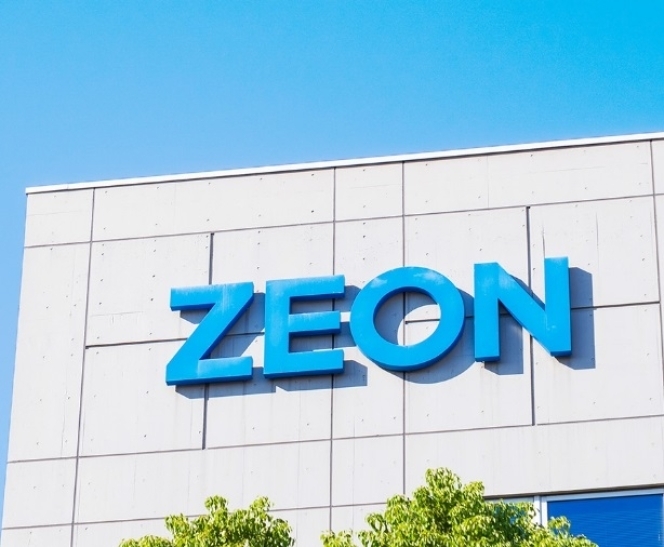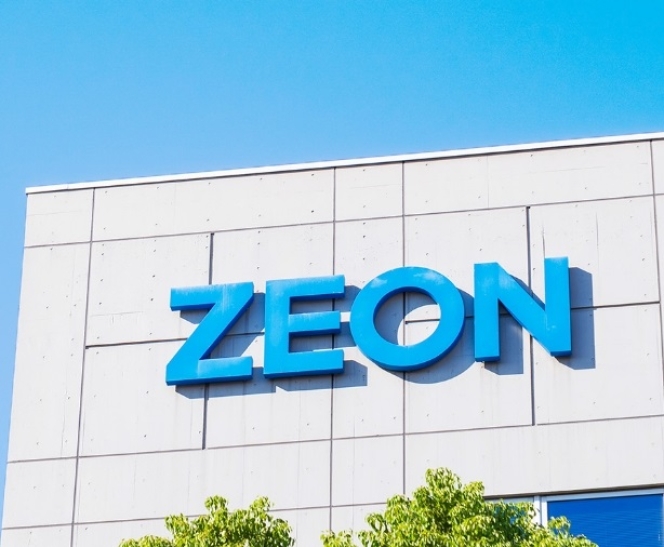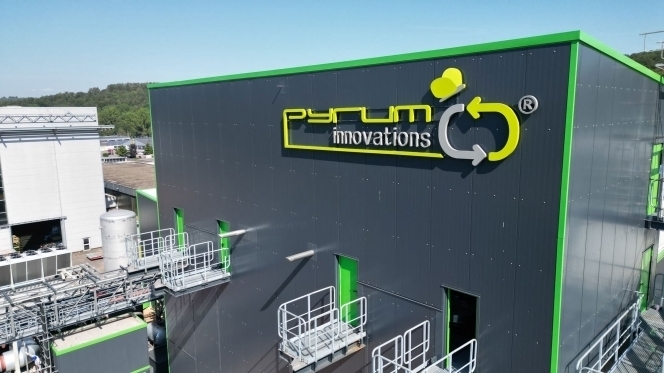- Bridgestone
- Tokai Carbon
- Kyushu University
- Okayama University
- Recovered Carbon Black
- Carbon Black
- Eco Carbon Black
- Virgin Carbon Black
Joint Project Launched To Advance Performance Properties And Production Of Recovered Carbon Black
- By TT News
- January 31, 2025
Tokai Carbon Co., Ltd., Bridgestone Corporation, Kyushu University and Okayama University have started a technology development project to perform secondary processing on recovered carbon black (rCB) extracted from polymer products like end-of-life tyres containing rubber in order to create new eco carbon black (eCB) from these and other sources. With rubber reinforcing qualities comparable to those of virgin carbon black (vCB), which is made from coal and petroleum, the initiative seeks to transform these resources into eCB. Through the development of cutting-edge recycling technologies, the collaborative project partners want to contribute to the attainment of a circular economy and carbon neutrality.
This project is a component of the ‘Technology Development for Carbon Recycling from Polymer Products Including End-of-Life Tires’ demonstration programme, which was put out by Tokai Carbon in collaboration with Bridgestone, Kyushu University and Okayama University. The New Energy and Industrial Technology Development Organisation (NEDO) chose the project on 23 December 2024, under the heading of ‘Green Innovation Fund Project/Technology Development for Manufacturing Plastic Raw Materials Using CO₂ etc’.
In order to recover and utilise rCB, efforts are already in progress to pyrolyse polymer materials, including rubber from tyres that are nearing the end of their useful lives. Nevertheless, there are still obstacles to overcome before rCB may be used practically in new tyres. Because it contains so many contaminants, rCB performs worse than vCB when it comes to rubber reinforcement. Additionally, heat recovery produces CO2 emissions even if many end-of-life tyres are successfully used as fuel. The demand for tyres is predicted to increase in tandem with the projected expansion in the automotive and transportation sectors. The goal of these initiatives is to improve resource circulation by making it easier to recycle vCB, a crucial component of tyres.
Bridgestone, Kyushu University and Okayama University's knowledge and technologies will be combined with Tokai Carbon's own technologies and skills gained from manufacturing carbon black. The goal of the collaborative project is to create technologies that will eliminate impurities from rCB and create eCB with better rubber reinforcing qualities. By fiscal year 2032, the initiative aims to set up a demonstration unit that can produce 5,000 tonnes of eCB annually. The research will also concentrate on creating unique polymer/carbon composites that allow carbon black to be reused without pyrolysing tyres that have reached the end of their useful lives. With these efforts, the collaborative project participants hope to achieve enhanced recycling of scarce materials and contribute to lowering the CO2 emissions linked to the manufacturing of carbon black and the recycling of end-of-life tyres.
Zeon And Visolis Sign Binding Term Sheet To Advance Bio-Isoprene And SAF Commercialisation
- By TT News
- February 16, 2026

Zeon Corporation and Visolis Inc. have formalised their partnership by signing a binding term sheet, marking a pivotal advancement in the commercialisation of bio-based isoprene monomer and sustainable aviation fuel (SAF).
This collaboration, which now moves from technology verification towards project implementation, is built upon the progress made since their initial memorandum of understanding in March 2024 and the subsequent joint feasibility study announced in April 2025. Bio-based isoprene monomer serves as an essential component in the production of synthetic rubbers and various other materials, while SAF is increasingly recognised as a critical next-generation fuel for reducing carbon emissions within the aviation industry.
The newly established term sheet outlines a foundational agreement on the key elements required for a final investment decision. These include defining the business structure and the respective roles of each company, establishing technology and development strategies and advancing detailed engineering for the proposed production facility. Furthermore, the agreement covers the evaluation of potential sites, the process for engaging with suppliers, securing necessary regulatory approvals and planning the financing pathway.
The envisioned facility is set to commence commercial-scale output after successfully demonstrating mass production capabilities for biomass-based isoprene and SAF, utilising Visolis’ proprietary technology. Both companies are now committed to expediting the path to full-scale production and ensuring a steady supply of these sustainable products to the global market.
Zeon Backs Chemify To Accelerate Digital Chemistry Innovation
- By TT News
- February 12, 2026

Zeon Corporation has deepened its commitment to digital chemistry through a strategic investment and partnership with Chemify Limited, secured via its corporate venture arm Zeon Ventures Inc. Chemify, a growth-stage UK enterprise, is reshaping molecular research by integrating digital tools with automated laboratory systems. Its proprietary Chemputation technology translates molecular targets into executable chemical code, which operates directly on robotic platforms to complete integrated Design–Make–Test–Analyze cycles without manual intervention. This closed-loop automation allows Chemify to explore previously inaccessible areas of chemical space while reducing the timeline from concept to synthesized compound by up to tenfold.
A cornerstone of Chemify’s capability is its recently inaugurated Chemifarm in Glasgow – one of the most sophisticated automated facilities in the world for molecular design and construction. The facility enables accelerated iteration and autonomous synthesis of novel small molecules, converting chemical code into tangible compounds with unprecedented efficiency. These advances are critical for developing functional, synthesisable molecules that can contribute solutions to urgent global issues spanning public health, energy efficiency and environmental protection.
Zeon has been at the forefront of adopting digital methodologies in chemical R&D, recognising their transformative potential from an early stage. This investment is positioned to strengthen Zeon’s internal digital chemistry efforts and catalyse the invention of novel materials capable of addressing complex societal needs. The move aligns with Zeon’s STAGE30 corporate strategy, which targets a rise in revenue contribution from four key growth sectors – Mobility, Healthcare and Life Sciences, Telecommunications and Green Transformation – to 48 percent by fiscal 2028. By backing pioneering enterprises and cultivating advanced materials, Zeon continues to advance its dual vision of a sustainable planet and a secure, progressive society.
- Rubber Board Of India
- Rubber Producers’ Societies
- Sulphur Dusting
- Powdery Mildew
- Rubber Plantations
- Rubber Board Subsidy
Rubber Board Announces Sulphur Dusting Subsidy For Rubber Producers
- By TT News
- February 09, 2026

The Rubber Board of India has announced the opening of an application window for financial aid for sulphur dusting to combat powdery mildew disease in rubber plantations for the year 2026. The scheme is open to all Rubber Producers’ Societies (RPS) operating in both traditional and non-traditional growing regions.
From 10 to 20 February 2026, eligible societies must submit their applications online through the 'ServicePlus' portal on the official Rubber Board website. Societies requiring help with the submission process are advised to contact their nearest Rubber Board regional office or field station, or to consult the board's website for further guidance.
French Recognition Of TPO Bolsters Pyrum's Circular Economy Model
- By TT News
- February 09, 2026

Pyrum Innovations AG has welcomed the official recognition by French authorities on 17 January 2026, which classifies tyre pyrolysis oil (TPO) as a legitimate raw material for the chemical sector. This pivotal regulatory milestone for pyrolysis oil derived from end-of-life tyres substantially enhances the product’s integration into established chemical value chains. It also provides greater predictability for future purchase and partnership frameworks, thereby accelerating the development of industrial material cycles.
For Pyrum, which processes scrap tyres through pyrolysis to recover pyrolysis oil, industrial carbon black and steel, this decision underscores the critical need for standardised and reliable regulatory conditions. Such clarity is fundamental for scaling investments, production volumes and supply chains, particularly as the chemical industry and circular economy converge. The establishment of clear product categories is essential to ramp up the market for high-quality recycled raw materials.
The company remains committed to tracking further developments in France and the wider European dialogue regarding the classification and application of recycled feedstocks. Pyrum’s overarching objective is to expand industrial-scale recycling solutions for scrap tyres. This regulatory progress directly supports the company’s mission to secure long-term, quality-assured supply agreements with partners across the chemical industry, thereby advancing a more sustainable and circular economic model.
Pascal Klein, CEO, Pyrum Innovations AG, said, “The decision in France is an important step for the industrial use of pyrolysis oil from waste tyres. It supports a trend that we are seeing in many markets, where the chemical industry is seeking reliable, technologically robust and clearly classified alternative raw materials.”







Comments (0)
ADD COMMENT